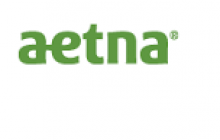Transforming Healthcare Through Collaboration

New models of medicine are driving transformation in healthcare. Value-based models and consumer expectations are changing the way we manage the health of a population. Payers are rethinking how to build strong relationships with in-network providers, and how to meet consumer expectations.
Joe O'Hara, director of clinical innovation at Horizon Blue Cross Blue Shield of New Jersey, will discuss the organization's clinical integration approach to support providers in value-based models of care. Their goals:
• Help more members find patient-centered care;
• Improve STARS rating;
• Reduce out-of-network spending; and
• Continue migration from fee-for-service to fee-for-value.
Learn about Horizon's pathway to clinical integration.
Advisory Board on Business and Clinical Motivators Meeting
Toria Thompson, Behavioral HIE Coordinator at Colorado RHIO (CORHIO), addressed the Advisory Board on Business and Clinical Motivators on Wednesday. She led the group on the good work that is being done in Colorado regarding integrating behavioral health with health Information technology. Ms. Thompson made the point that physical health is now only beginning to apply the “whole of person” approach that has been in use by behavioral health for years. She also identified a concern that they had regarding privacy and that the pilot program found they could not share behavioral health data through HIPAA and required a consent-based approach.
Advisory Board on Business and Clinical Motivators Featuring IMS Health
This week, IMS Health’s Institute for Healthcare Informatics addressed eHI’s Advisory Board on Business and Clinical Motivators. They brought their unique perspective on the challenges and promise of mHealth in the future of healthcare. Presenters James Tong, Michael Krupnick, and Brian Clancy spoke briefly on their work with AppScript and AppNucleus, their proprietary software. Of particular note was their emphasis that there are over 165,000 application out in the marketplace currently and how it is their goal to provide accurate information on the best apps for users.
Advisory Council on Business and Clinical Motivators- Iora Health
MACRA Quality Payment Program: Key Things to Know and Strategies for Success
Learn about key takeaways from the final rule for the MACRA Quality Payment Program, the role of health IT in the Merit-based Incentive Payment System (MIPS) and Alternative Payment Models (APMs), and how to prepare for long term success with value-based payment.
The Future of Care Delivery
While the future of value based care is unknown, one thing that is stable is the common vision that payers and providers who figure out how to collaborate, how to share information, and how to use technology to enable higher quality and lower costs will forge ahead and succeed. One thing everyone can agree on is that we must find a way to maximize mutual resources such as technology and data in order to lower costs and improve the quality of care.
How to prepare for MACRA by January 1, 2017

Big changes are ahead in how Medicare will pay physicians. The MACRA rule establishes a new Medicare physician payment program that starts January 1, 2017, yet few providers understand how this this important change will affect how they are paid.
Implementing tools for providers to access patient data
The Nebraska Health Information Initiative (NeHII) has begun implementation of tools that enable providers to seamlessly access patient data in the NeHII repository from within their EHR. This single sign-on function captures user access credentials and the context of the patient record whose record the user is accessing within the EHR. This minimizes the workflow disruption for providers to access NeHII records. In the first month of implementation, 741 users adopted single sign-on and accessed almost 6,000 patient records.
Necessary for Meaningful Use
The Kentucky Health Information Exchange (KHIE) is the public health authority for Meaningful Use in the state of Kentucky, as deferred from the KY Department for Public Health. Providers are required to connect with KHIE in some capacity, in order to attest to the EHR Incentive Program. Serving in this function has allowed KHIE to broaden its interoperability efforts and capture a range of data used for public health reporting. Between 2011 and 2012, KHIE implemented support for public health data submissions for: immunization data for the KY immunization registry
Working toward closed-loop statewide referral networks
For the past 5 years, Great Lakes Health Connect (GLHC) has been working on developing a closed-loop referral network across the state of Michigan for any and all organizations involved in the healthcare ecosystem, including physical health, behavioral health, and social services. The focus has been not just sending an
